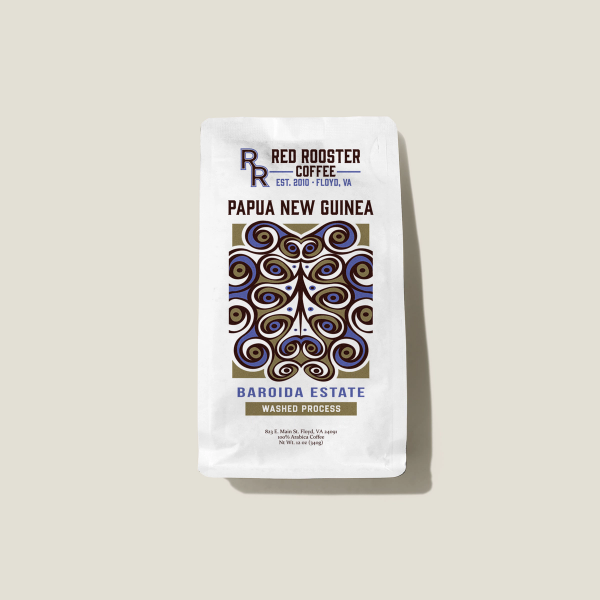Papua New Guinea Baroida Estate Washed
12oz. Bag — $22
Grown in the highlands of Papua New Guinea, this washed coffee comes to us from the Colbran family's Baroida estate. The Colbrans are well known for their high quality coffee and traditional, yet innovative cultivation and processing methods. Their knowledge and care result in a wonderfully balanced and mildly earthy cup with notes of lemongrass, caramel, and a mellow tangerine sweetness.
Tasting Notes
- Lemongrass
- Tangerine
- Praline
Details
Process
WashedVarietals
Arusha , Bourbon, Mundo Novo, TypicaElevation
1,700-1,850 maslProducer
Baroida EstateGreen Cost
$4.75/lbC-Market Price
$1.96Chemex

Form meets function in the classically beautiful Chemex brewer. Grind size is critical when brewing with this method since the brew bed can get large. Use a coarser grind to experience bright and floral fruit notes.
Sourcing & Processing
The Baroida estate, founded by Ben Colbran in the 1960s, sits at the apex of the Lamari river valley and Mount Jabarra in the Eastern Highlands Province of Papua New Guinea. The name ‘Baroida’ comes from the Baroida spirit, believed by locals to reside in a large unmovable rock in the middle of one of the rivers flowing through the estate.
Ben Colbran was among the first farmers to grown coffee in this valley and had to develop new and innovative cultivation methods for the unique soil and climate. He adapted and altered farming methods from Kenya, adding drainage ditches in between each row of coffee. The Colbrans planted a number of shade trees and implemented a plan to add more trees to the estate each year.
The Colbran family has a tradition of spending time with their coffee plants and ‘reading’ their needs. This sensitivity and knowledge continues to grow with time and experience and is passed down through the family. Ben's son Nicol Colbran currently runs the estate. According to Nicol, the high quality of their coffee is, in part, due to their hands-on ‘old fashioned’ methods.
This coffee was meticulously sorted, pulped on disk pulpers, and moved to vats to dry-ferment for approximately 36 hours. After fermentation, water was pumped into the vats in a circular motion to naturally agitate the coffee and remove any remaining mucilage. The clean coffee was then sundried on tarps and turned regularly to ensure even drying.
More coffees with a medium roast profile
Need to cut the caffeine?
Try a low- or no-caffeine variety


